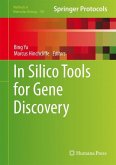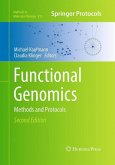As functional genomics has become one of the major focuses in molecular biology, the need for more sophisticated tools to assist in the identification of the functionality of undefined genes and the correlation of DNA variants with a particular phenotype has increased greatly. In Silico Tools for Gene Discovery collects many common and useful in silico tools available today. The volume begins by investigating locus mapping information on linkage analysis, association mapping, integrative analysis, and exome analysis as well as tools for DNA marker selection, in silico PCR, and statistical analysis. It continues with a section on gene discovery from a defined locus, including gene prioritization, knowledge tracking, and data mining, and concludes with several useful in silico tools presented for the functional characterization of genes, which include DNA sequencing analysis, variant characterization, as well as RNA and protein analysis. Written in the highly successful Methods in Molecular Biology(TM) series format, chapters include introductions to their respective topics, step-by-step, readily reproducible protocols, and vital notes on troubleshooting and avoiding known pitfalls.
Resourceful and easy to follow, In Silico Tools for Gene Discovery seeks to facilitate scientists with further key research on locus mapping, to accelerate gene identification, and to help ascertain the functionality of DNA variation.
Resourceful and easy to follow, In Silico Tools for Gene Discovery seeks to facilitate scientists with further key research on locus mapping, to accelerate gene identification, and to help ascertain the functionality of DNA variation.








